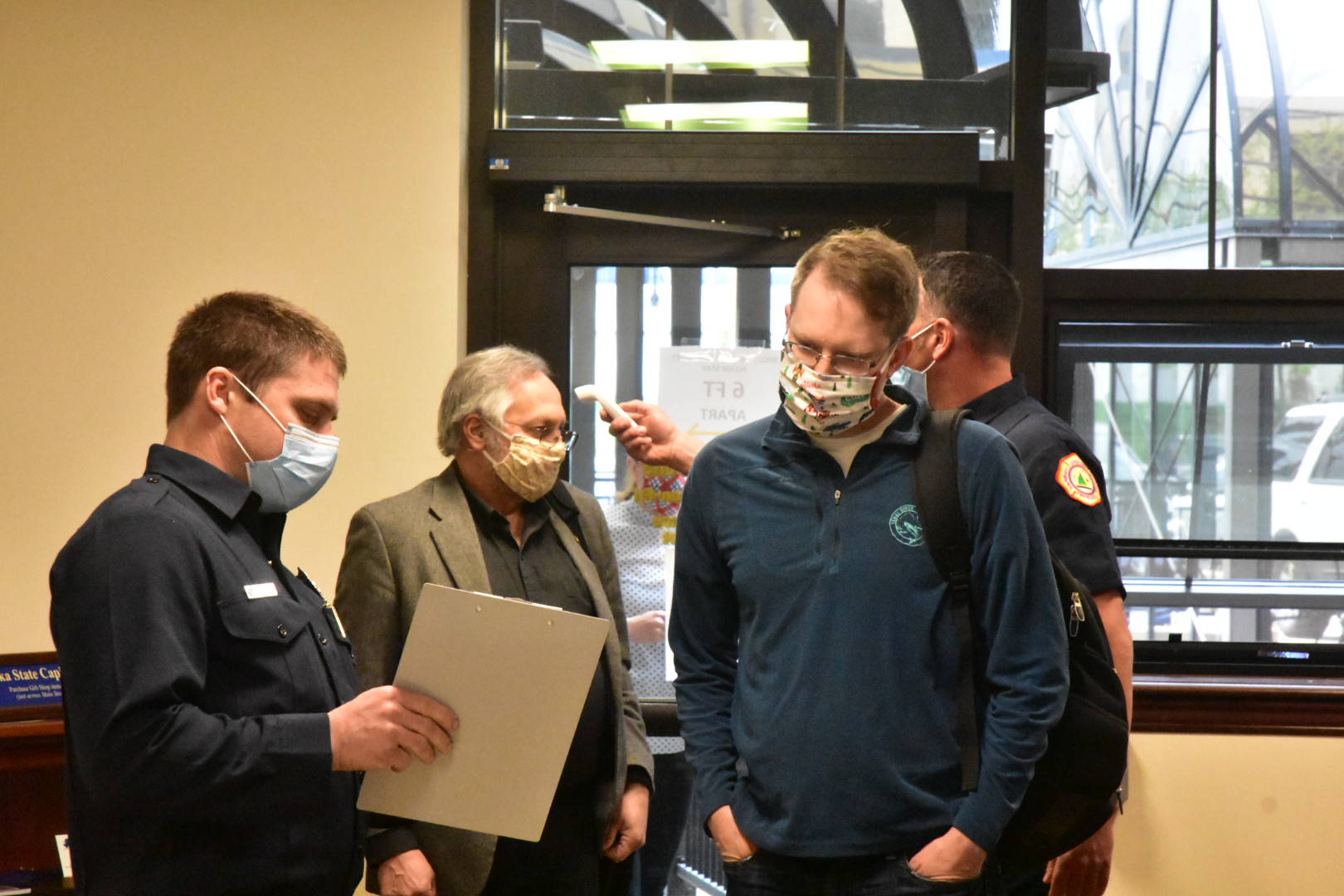The Alaska State Legislature introduced two bills Monday, each meant to approve the governor’s proposal for allocating federal relief money, in hopes of passing the legislation by the end of the regular legislative session Wednesday at midnight.
Lawmakers arrived in Juneau Monday afternoon and wasted no time in getting to work, having conducted floor sessions and begun committee meetings within 90 minutes of arriving at the Capitol. Both bodies are adjourned until 9 a.m. Tuesday.
“I understand the circumstance,” House Speaker Bryce Edgmon, I-Dillingham said to the House’s first floor session since returning to Juneau. “It will be my intent as Speaker to get our work done in a timely manner as possible.”
The Senate’s session was even shorter, with no comments made by Senate President Cathy Giessel or any senators.
Bills approving Gov. Mike Dunleavy’s distribution of federal COVID-19 relief money through the revised program legislative, or RPL, requests process were drafted over the weekend, and legislators set to work right away on moving those bills through the Legislature.
Earlier this month, Dunleavy proposed allocating roughly $1.5 billion in federal relief money using the RPL process and despite warnings from some lawmakers about the legality of doing so, the LBA committee approved the governor’s RPLs last week.
That move was challenged in court by a Juneau man who submitted a lawsuit immediately following LBA’s approval of the governor’s proposal. That lawsuit, and the possibility of hamstrung relief funding, forced lawmakers to come back to Juneau and approve the RPLs through the legislative process.
[Juneau man sues state over coronavirus relief distribution]
Monday afternoon, both the House and Senate held brief floor sessions in which each body’s respective bill was referred to the relevant committee, Finance Committee for the Senate and Rules Committee for the House.
The bills are identical Stedman told the Empire, and the two were introduced simultaneously because it would be faster, he said.
“The prevailing bill would be whichever passed first,” Stedman said.
The bills are both ratification bills, meaning they are only an approval of the governor’s appropriations and do not allow for amendments.
That was something of a problem for Sen. Bill Wielechowski, D-Anchorage, who said the ability to change the appropriations would allow the Legislature to more effectively distribute the money.
“The constitution requires a legislative appropriation,” Wielechowski said in an interview. “I can’t stand up on the floor and make an amendment to this, that’s not a true appropriation bill in my mind.”
While he preferred an appropriations bill, Wielechowski told the Finance Committee, “I’m not going to let perfect get in the way of the good.”
Public testimony was taken during the latter part of the Senate Finance Committee and city leaders from across the state called in to urge lawmakers to move as quickly as possible to distribute the funds.
COVID-19 was “a new type of disaster to us,” Northwest Arctic Borough Mayor Lucy Nelson said. “Northwest Arctic Borough has had to cover un-anticipated and un-budgeted items in response to the pandemic.”
Nelson said so far her borough has no COVID-19 cases, but has had trouble purchasing even basic cleaning supplies like hand sanitizer.
City and Borough of Juneau City Manager Rorie Watt called in to the public testimony session to thank legislators for their prompt return to Juneau.
“Public finances are suffering from lost revenue,” Watt said.
• Contact reporter Peter Segall at psegall@juneauempire.com. Follow him on Twitter at @SegallJnoEmpire.

